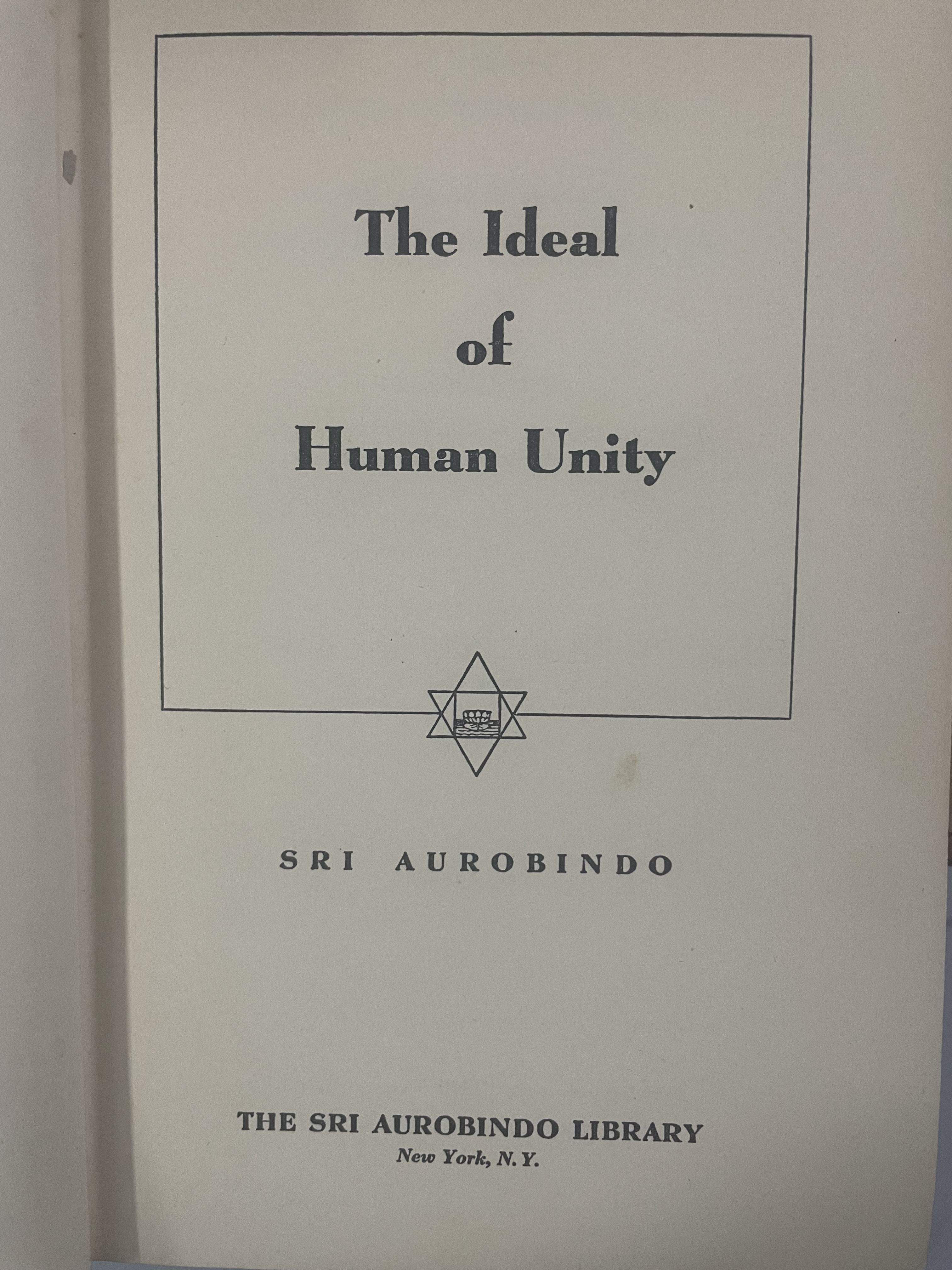The Ideal of Human Unity

About
Summary
Exquisite
TOC
Details
Related
URL
Images
Overview
The Ideal of Human Unity by Sri Aurobindo, is a comprehensive exploration of the possibilities, processes, and necessities of human unification. Written during World War I and later revised, the book delves into the historical attempts at unification, the psychological and practical challenges involved, and Aurobindo's vision for a future world order based on spiritual principles.The Ideal of Human Unity examines the drive toward unity, its historical precedents, and the potential forms it might take. Sri Aurobindo analyzes the forces that both propel and impede unification, considering political, economic, and cultural factors. He critiques the limitations of past attempts at unity, such as empires and leagues of nations, and proposes a more profound and lasting basis for unification rooted in a spiritualized humanity. The book explores various models, from a world empire to a free grouping of mankind, ultimately advocating for a system that balances unity with diversity, allowing for individual and collective freedom and growth.
Importance of Book
Visionary Perspective: It offers a visionary perspective on the future of humanity, outlining a path towards greater unity and harmony.
Comprehensive Analysis: The book provides a comprehensive analysis of the challenges and opportunities involved in achieving human unity.
Spiritual Foundation: Aurobindo grounds his vision of unity in spiritual principles, offering a unique perspective that transcends purely political or economic considerations.
Influence on Indian Thought: The book has had a significant influence on Indian thought, inspiring generations of thinkers and activists to work towards a more unified and just world.
Key Themes
The Necessity of Human Unity: Aurobindo posits that human unity is not merely a desirable ideal but a necessary step in humanity's evolutionary journey. He argues that the increasing interconnectedness of the world demands a more unified global order to prevent conflict and promote progress.
Unity in Diversity: Aurobindo emphasizes the importance of maintaining diversity within unity. He cautions against imposing uniformity, arguing that true unity must respect and celebrate the unique qualities of individuals, cultures, and nations.
Spiritual Transformation: Aurobindo believes that lasting human unity can only be achieved through a spiritual transformation of individuals and societies. He advocates for the cultivation of a religion of humanity based on love, compassion, and the recognition of the divine within all beings.
The Limitations of the Nation-State: Aurobindo critiques the nation-state as a limited and often divisive form of political organization. He argues that the nation-state system fosters conflict and prevents the realization of human unity.
Evolution of Consciousness: Aurobindo views human history as a process of evolving consciousness, moving from fragmentation and division towards greater unity and integration. He believes that humanity is on the cusp of a new stage of evolution in which unity will become the guiding principle of social and political life.
Cultural Significance
Synthesis of East and West: Aurobindo's work synthesizes Eastern and Western philosophical traditions, offering a vision of unity that draws on both spiritual and rational insights.
Promotion of Indian Idealism: The book promotes Indian ideals of spirituality, harmony, and universalism, presenting them as a basis for global unity.
Critique of Western Materialism: Aurobindo critiques Western materialism and individualism, arguing that they undermine the possibility of true human connection and unity.
Emphasis on Inner Transformation: The book emphasizes the importance of inner transformation and spiritual growth, offering a path towards unity that begins within the individual.
Effects on Society
Inspiration for Social Activism: The Ideal of Human Unity has inspired social activists and reformers to work towards a more just and equitable world order.
Promotion of Interfaith Dialogue: The book has promoted interfaith dialogue and cooperation, encouraging people of different religions to find common ground and work together for the common good.
Influence on Education: Aurobindo's ideas have influenced educational reforms, promoting a more holistic and integrated approach to learning that emphasizes the development of both the mind and the spirit.
Contribution to Global Consciousness: The book has contributed to a growing global consciousness, fostering a sense of interconnectedness and shared responsibility among people from different nations and cultures.
Conclusion
The Ideal of Human Unity remains a relevant and inspiring work, offering a vision of hope and a roadmap for building a more unified and harmonious world. While the challenges to achieving this ideal are immense, Aurobindo's work reminds us that the pursuit of unity is essential for the future of humanity.
Table of Content
The 1950 edition of \"The Ideal of Human Unity\" by Sri Aurobindo is a philosophical work that explores the concept of human unity and the potential for a unified human society. While the specific table of contents for this edition may vary slightly, the general structure of the book includes the following key sections:IntroductionOverview of the book\'s themes and objectives.
The Ideal of Human UnityDiscussion on the concept of unity in human society and the vision for its realization.
The Evolution of Human UnityAnalysis of the historical and evolutionary development of human unity.
The Basis of Human UnityExploration of the philosophical and practical foundations necessary for achieving unity.
The Problems of UnityExamination of the challenges and obstacles to human unity.
The Future of Human UnitySpeculation and vision on the potential future developments towards a unified humanity.
Title
The Ideal of Human Unity
Author
Sri Aurobindo
Name of Publisher
The Sri Aurobindo library Newyork
Publish Date
1950
Subject
The concept of human unity and the potential for a unified human society
Vintage
1948-2000
Edition
First
Number of Pages
340
Category
Spiritual
Sub Category
Philosophy
Rarity
RARE
